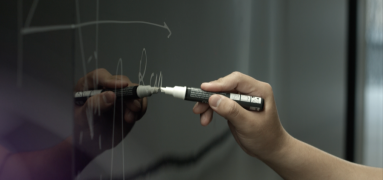Royce infrastructure will help Faraday Institution researchers make batteries lighter, cheaper, safer and more efficient – understanding the fundamental processes within the all-solid-state battery is critical to developing next-generation batteries required for the electrification of vehicles.
A team of Faraday Institution researchers aims to demonstrate the feasibility of a solid-state battery with performance superior to existing Li-ion batteries in electric vehicle applications. The successful implementation of an alkali metal negative electrode and the replacement of the flammable organic liquid electrolytes, currently used in Li-ion batteries, with a solid would increase both the range of the battery and address safety concerns.
The SOLBAT project is one of the nine research projects funded by the Faraday Institution. It is a collaboration led by the University of Oxford, with five other university partners, aiming to break down the barriers that are preventing the progression to market of solid-state batteries, that should be lighter and safer, meaning cost savings and less reliance on cooling systems.

UNIVERSITY CROSS COLLABORATION
The SOBALT project is a collaboration of six universities including three Royce partners (Universities of Liverpool, Cambridge and Sheffield).
"The investment by both the Henry Royce Institute and the Faraday Institution in energy storage research has made it possible for large-scale projects such as SOLBAT to take place involving world-leading universities and UK industry. Understanding the fundamental processes that take place in all-solid-state batteries will place the UK industry in a strong position to capitalise on a growing market"
Professor Peter Bruce
Royce Champion, Energy Storage & PI, SOBAT



